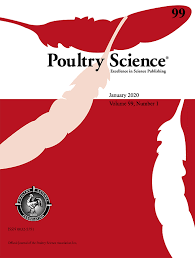Document type: article published in Poultry World
Author: Roberto Montanhini Neto
Preview: Climate change increases extreme heat events' frequency, intensity, and duration. In parallel, genetic modifications for production efficiency have made the modern chicken more vulnerable to environmental stressors. Consequently, the prevalence of physiological heat stress in poultry is also increasing, reducing the ability of birds to be healthy and productive. Heat stress disrupts the physiological processes of hens, which may lead to reduced egg productivity and welfare or even decreased livability, causing unnecessary economic loss.
Effects of heat stress [...]Physiological effects of heat stress [...]Oxidative stress [...]Natural coping mechanisms [...]Nutritional strategies to cope with HS [...]Beneficial effects of phytogenic feed solutions
Phytogenic feed solutions have recently gained the recognition of researchers and animal nutritionists as solutions for mitigating various challenges livestock face. These botanical-based compounds can effectively help modify different stages of the animals' metabolic functions, supporting their health status, resilience capacity, and productive performance through direct and indirect modes of action. Among these modes of action, specifically formulated Phytogenics can be an efficient tool in poultry to tackle the main topics mentioned above in this article: supported feed intake and nutrient utilisation, oxidative balance, and the expression of HSPs. [...]Phytogenics can help regulate the production of digestive juices and endogenous enzymes, enhancing the degradation of feed components into absorbable nutrients, besides activating nutrient transporter proteins in the cell membrane of the intestinal epithelium. Botanical compounds found in specific bitter substances and essential oils are used to modulate digestive functionality and address these action modes. [...]On the metabolic side, reducing catecholamine levels in the blood also supports reduced catabolism of proteins, adipose, and glycogen. Moreover, reducing cortisol is vital to ensure that reproductive regulation hormones (FSH and LH) are released and act during egg formation and laying. Similarly, cortisol reduction is crucial so the expression of antioxidant enzymes can be recovered. In this same direction, the support provided by phytogenics like essential oils and flavonoids helps mitigate oxidative stress impacts through direct (ROS scavenging) and indirect (inducing the expression of antioxidant enzymes) effects, particularly in epithelial tissues of GIT and oviduct.
Finally, recent studies demonstrated the power of some herb extracts in stimulating a higher gene expression toward the synthesis of HSPs, particularly HPS70. This observed effect from substances found in certain plants, such as rosemary, unleashes birds' intermediary metabolic pathways under high ambient temperatures, helping to support flock livability rates and enhancing hens' productive performance.






